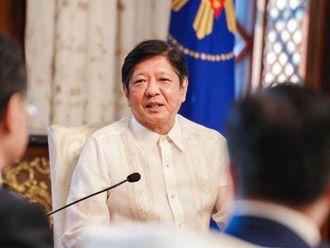
Manila: Thirty parents filed a class suit against education officials for the inclusion of sex education in primary and secondary schools, both private and public, a TV report said.
Pro-life lawyers James and Jo Aurea Imbong filed the class suit against officials of the Department of Education, including outgoing education secretary Mona Valisno and education undersecretary Ramon Bacani, before a regional trial court in suburban Quezon City.
The court should issue a restraining order to the education department to stop the mandatory teaching of sex education in grade schools, said Imbong, a senatorial candidate of the Brotherhood (Kapatiran) Party who lost in the May 10 polls.
The education department is trying to overtake parents' responsibility to teach their children sex education, said Imbong, adding, "It is still the primary responsibility of the parents and families to inform their children about sex."
Imbong was head of the legal office of the influential Catholic Bishops Conference of the Philippines.
The Catholic Church is strongly against sex education. It has been blocking the passage of the long pending Reproductive Health Bill, which allows the use of contraceptive for family planning.
Imbong said that the government's sex education program is a form of "contraceptive imperialism," adding, "The education department's modules for sex education promote family planning, reproductive health and demographic development."
Since sex education is included in subjects such as Mathematics, Science and English, the government's module is "specifically designed to transform the attitudes, behavior and social norms of young people based on a foreign model," said Imbong.
In response, Education Secretary Valisno said that CBCP representatives and parents who were consulted about the education department's program were very happy about it because it can provide relevant information to children.
"Our curriculum doesn't talk about condoms. It gives children exposure to right information for them to make the right decision. If we don’t need it, then the new secretary of education can change it," Valisno said in a TV interview.
Modules are "scientific and informative and were not designed to titillate prurient interest," said Valisno.
The government has proposed to include sex education in different subjects, topics of which will include parts of the body, reproductive cycle, puberty, proper behavior, personal hygiene, reproductive health, position of various religions on premarital sex, norms of interaction, and data on issues like premarital sex, teenage pregnancy, and sexually transmitted infections.
Sex education was meant to end the country's 2.2 per cent annual growth rate, analysts said.
The government's sex education program is funded by the United Nations Fund for Population Activities.












